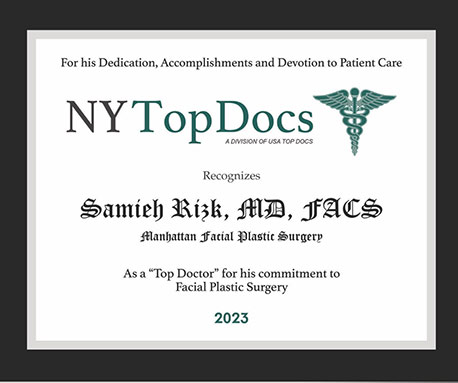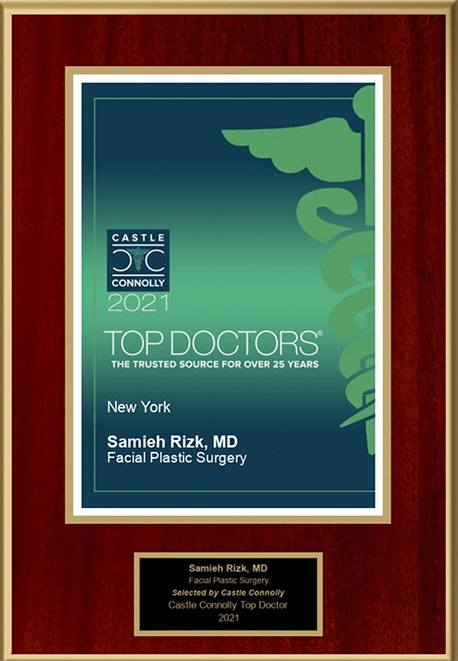Sinus Treatments
If you have been diagnosed with acute sinusitis or chronic sinusitis, the good news is that there are a number of treatments that may help. Your doctor will likely start you on a course of over-the-counter (OTC) medications and/or topical treatments. If these don’t work or if you have more severe symptoms, other therapies, prescription medications or even surgery may be necessary.
Treatments for Minor Symptoms
Because most cases of acute sinusitis are caused by viruses, patients with this form of the condition typically do not require treatment. Chronic sinusitis, on the other hand, may require extensive treatment, ranging from medication and allergy shots to sinus surgery.
Over-the-counter (OTC) Medications
Your doctor may advise any number of treatments for your sinus symptoms. The goals of treatment are to minimize inflammation, to help the sinuses drain properly, to address the root cause of the symptoms and to reduce flare-ups.
Over-the-counter pain relievers, including ibuprofen (e.g., Motrin IB, Advil, acetaminophen (e.g., Tylenol) and aspirin can be very effective in this regard. It is important to note that aspirin has been linked to a condition called Reye’s Syndrome in children, and therefore must be used with caution in children, particularly those recovering from chickenpox or flu symptoms. Contact your child’s pediatrician to learn more about aspirin and Reye’s Syndrome.
Topical Treatments
There are several potentially effective topical treatments used to treat sinus problems. Saline nasal sprays such as oxymetazoline (Afrin, others) are often recommended to rinse the nasal passages. Over-the-counter and prescription decongestants such as Sudafed, Actifed and Drixoral can also be effective; available in the form of tablets, nasal sprays and liquid form, these treatments should only be used for only a few days in most cases. In rare cases acute sinusitis can be caused by a fungal infection; the treatment for this is topical antifungal medication.
Treatments for More Severe Symptoms
In some cases patients may experience more serious sinus symptoms such as severe inflammation, bacterial infection or severe allergy symptoms. Nasal corticosteroid nasal sprays such as mometasone (Nasonex), fluticasone (Flonase), budesonide (Rhinocort Aqua), beclomethasone (Beconase AQ) and triamcinolone (Nasacort AQ) may be prescribed to treat severe, persistent inflammation. Antibiotics may be necessary to combat bacterial infections, though it should be noted that many cases of chronic sinusitis stem from other causes and therefore cannot be treated through antibiotics. In other cases severe sinus symptoms are linked to allergies, in which case immunotherapy (allergy shots) may be the best course of treatment. In rare cases sinusitis can be caused by a reaction to aspirin; this is treated through aspirin desensitization treatment, which is available only at specialized clinics and medical centers.
Sinus Surgery
In the most serious of cases, sinus surgery may be required. This should only be considered as a last resort, when sinusitis persists even after several steps have been taken to combat it.
Sinus surgery is usually reserved to patients with infectious and inflammatory sinus problems. Situations requiring sinus surgery include the following:
- Persistent or recurring sinusitis
- Chronic sinusitis that has not responded other treatments
- Nasal polyposis
- Sinus mucoceles
- Optic nerve decompression
- Excision of certain tumors
- Dacryocystorhinostomy (DCR)
- Foreign body removal
- Orbital decompression
- Epistaxis treatment
- Antrochoanal polyps
- Cerebrospinal fluid (CSF) leak closure
- Choanal atresia repair
To determine whether or not you need sinus surgery your physician will review your medical history and conduct a comprehensive physical exam, including possible CT scans.
Due to advances in medicine and technology, today sinus surgery has a higher success rate than in the past. Modern sinus surgery typically involves the use of an instrument called an endoscope — a thin, flexible tube attached to a light that allows the surgeon to view the sinus passages.
During functional endoscopic sinus surgery (FESS) the surgeon usually excises tissue or polyps causing the nasal blockage. In other cases the surgeon will create a wider sinus opening to help with drainage. Depending on the patient’s specific needs, the surgeon may also need to alter the angle of the septum, reduce the turbinates, insert spreader grafts and/or use other techniques to address an external valve collapse.
Functional endoscopic sinus surgery (FESS) can improve breathing as well as relieve other sinusitis symptoms. Speak with your surgeon to learn more.








